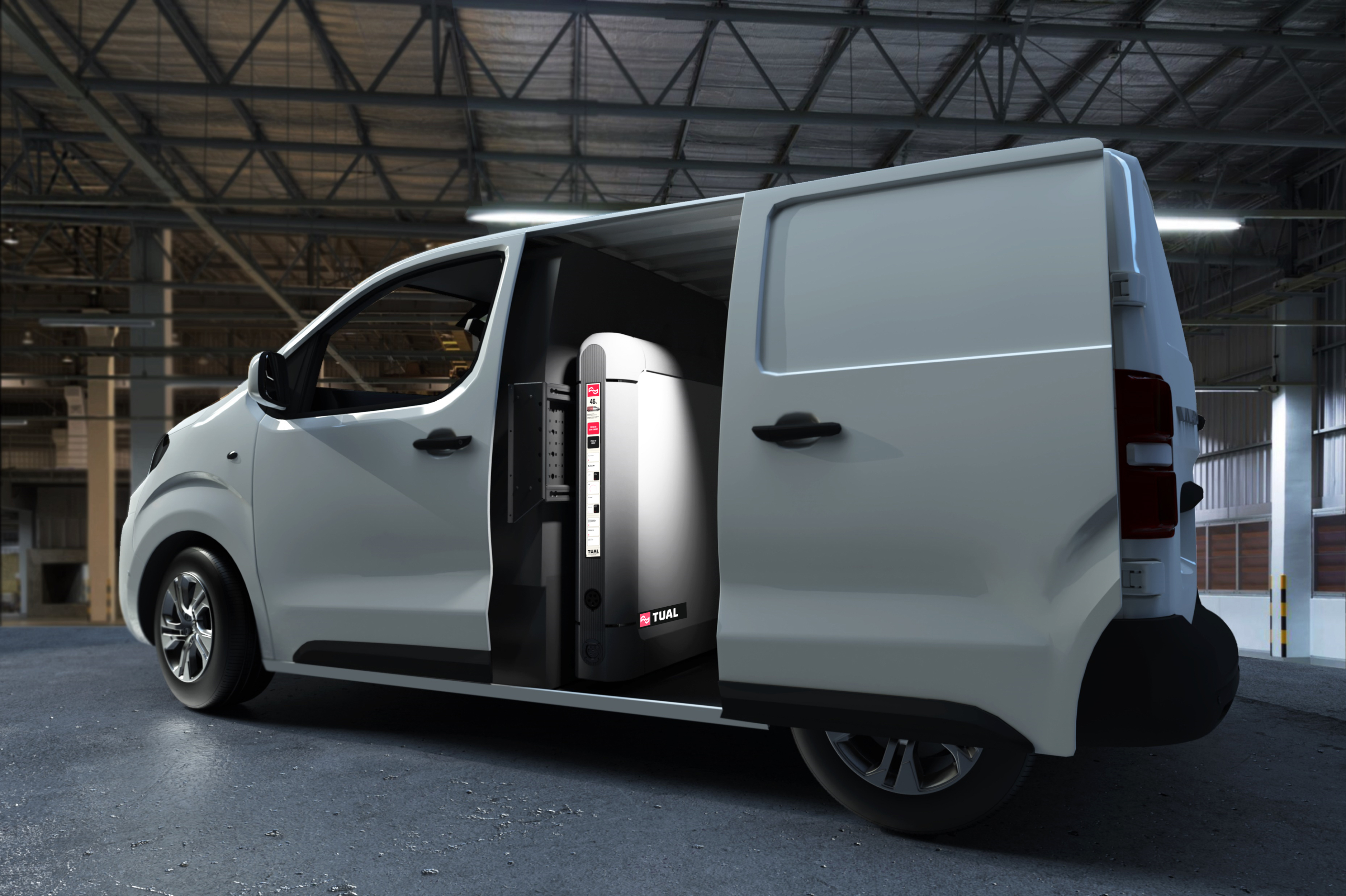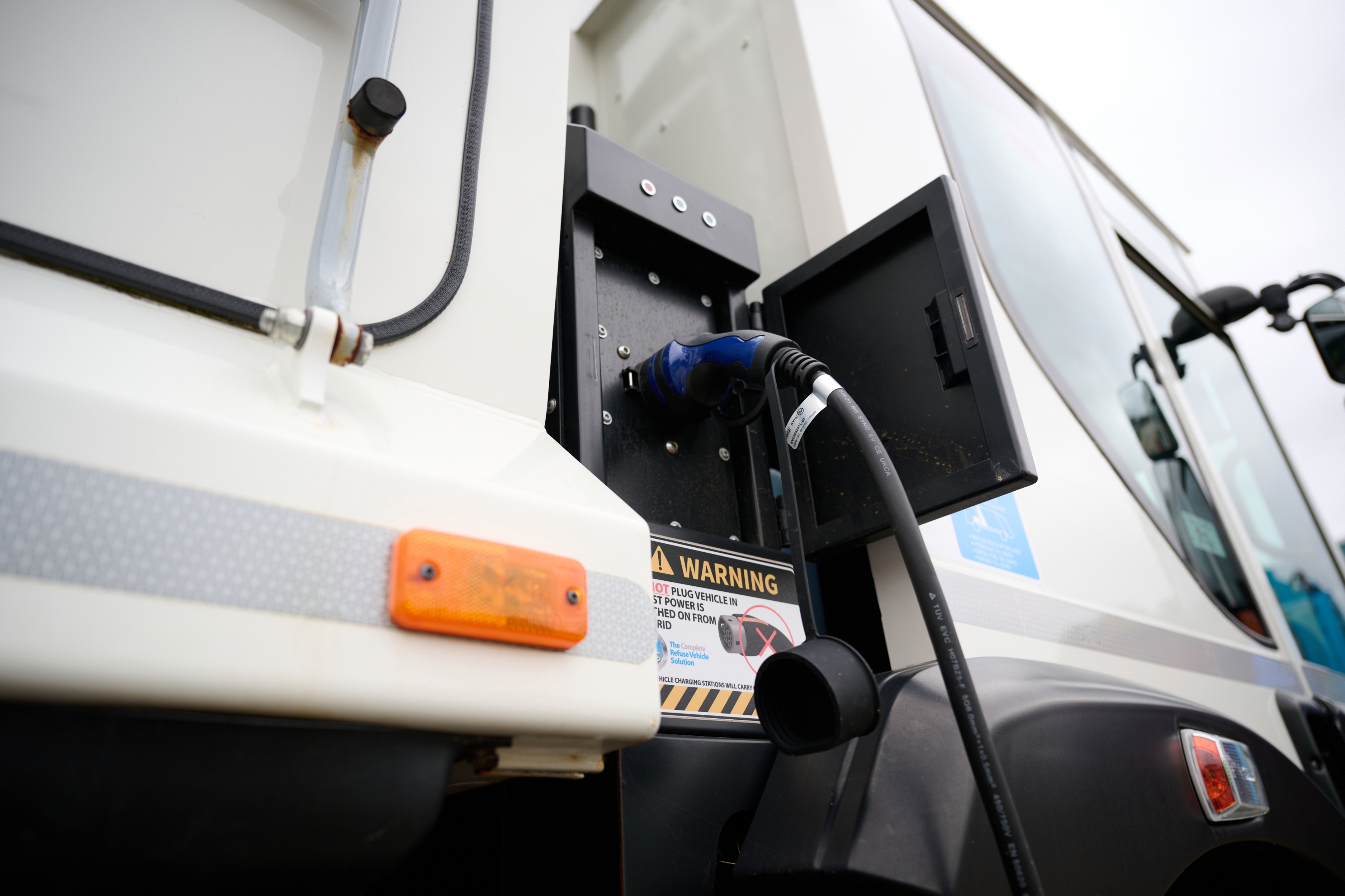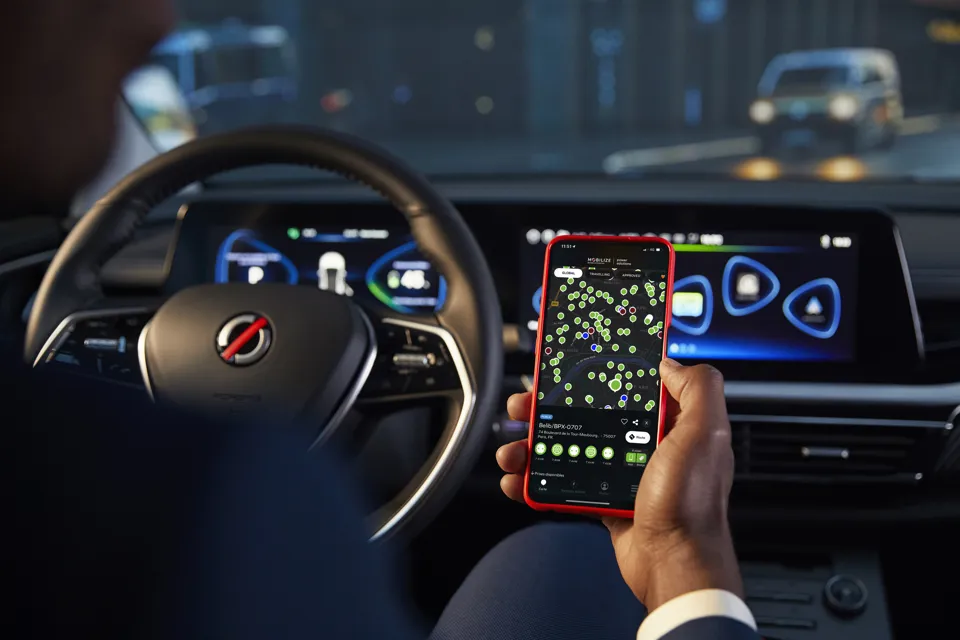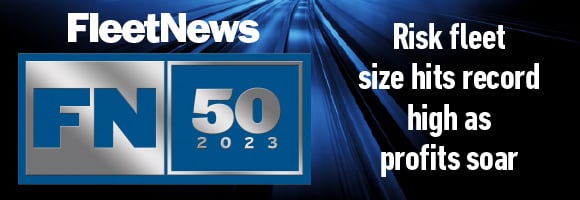Mobilize Power Solutions launches 'Fleet@Home'
Mobilize Power Solutions (MPS) has launched ‘Fleet@Home’, part of its Mobilize Manager software platform, adding home chargers to a businesses’ fleet charging infrastructure.
Using the Sevadis Autel AC 7 kW home charger at the employer’s home, the device sends back data in real time to the Mobilize Manager platform.
The data includes charging sessions, energy consumption and the cost per kWs used (based on the tariff details signed off by the fleet manager).
The employee is then reimbursed for the energy used for business miles, via Mobilize Manager’s integrated Stripe payment functionality.
Mark Dickens, managing director at Mobilize Power Solutions, said: “Nearly 60% of electric vehicles are registered to businesses, with many of them being charged at home.
“However, it is time consuming and difficult to separate electricity used for charging, from a domestic bill. This can lead to some drivers not even bothering to claim back expenses or calculating the cost incorrectly, which means that EV drivers are likely to be out of pocket at the end of the month.
“This is why we have added the Fleet@Home functionality to Mobilize Manager - making it fairer for the business driver and easier for the fleet operator to manage.”
Tual launches portable charger for electric van fleets

Tual has launched a portable electric vehicle (EV) charger to cover a range of critical use-cases for fleets, helping them take control of charging, overcome grid and vehicle constraints, and remove reliance on public charging infrastructure.
With 40% of van use-cases exceeding real-world electric LCV range, and 70% of van drivers unable to charge at home or depot, according to Tual, lost productivity from charging downtime can cost fleets up to £150,000 per driver or vehicle over a five-year period.
Developed from the ground-up, Tual’s modular powerbank technology can provide overnight charging delivered by charge collected on the return journey.
Once the driver returns to the depot, they are also able to swap powerbanks in 90 seconds, ensuring minimal disruption to the vehicle’s schedule.
Tual’s range extender solution enables vehicle deployment for long-range duty cycles, beyond their standard driving range.
Taking a powerbank with them during daily operations, drivers can park up their van while the system charges the vehicle’s battery each time it’s parked.
Philip Clarke, CEO and founder of Tual, said: “Providing van-fleet drivers with guaranteed access to the energy they need, at the time and place of their choosing, plays a critical role in transforming vehicle suitability, driver satisfaction, and fleet profitability. That is what Tual has been founded to achieve, and – together with some of Europe’s largest fleets – that is what our unique powerbank technology has been developed to facilitate.
“We are firmly on track on the journey from product development and prototyping to full-scale manufacturing, and the scope of the technology is hugely exciting for us – with the business looking in future to expand into haulage, agriculture, emergency-services, and defence fleets.
“Focusing our initial offering on the eLCV segment as a core component of enterprise fleets, we’re committed to delivering the tools they need to make a success of their transition to electric power.”
Raw charging deploys EV chargers at Legoland

Raw Charging has opened charging facilities at Legoland Windsor Resort, part of its partnership with Merlin Entertainments, installing EV chargers at five of the UK’s top attractions.
One of its largest installations to date with 38 charging bays, with 24 chargers at the theme park and 10 bays at its guest hotel.
Jason Simpson, CEO of Raw Charging, said: " We are starting work at other Merlin sites around the country to give EV drivers a fantastic experience at all these attractions."
Helen Bull, divisional director for Legoland Windsor Resort, added: "We are excited about our partnership with Raw Charging, which aligns perfectly with our commitment to environmental stewardship and enhances the visitor experience at Legoland.”
Vev and Whitespace partnership to help councils leverage data analytics

Vev and Whitespace are urging UK councils to leverage data analysis to achieve cost-effective transition of refuse collection vehicles to electric power.
By using telematics and energy data at the planning stage to assess critical factors such as vehicle routes and schedules, along with the increased energy requirement for EVs, fleets can design a bespoke, accurate EV configuration around the right mix of vehicles, chargers and energy sources.
Vev is currently working with public service provider, Serco, and RVS, the independent refuse vehicle solution supplier, to deliver a pilot scheme for electric recycling and waste collection vehicles (eRCVs) in Hampshire.
The pilot scheme will prove the operational feasibility and business case for eRCVs in Basingstoke and Deane, Hart, and Rushmoor.
Mike Nakrani, CEO of Vev, said: "Every fleet needs a different approach to electrification because every fleet is unique. And data-led planning enables bespoke configuration based on real fleet duty cycles and routes.
“There's still time to get it right, and we believe the combination of Vev and Whitespace provides the expert support councils and waste contractors need to make the move to EVs. "
Mark Garvey, CEO of Whitespace, added: "At Whitespace, we understand the pivotal role software optimisation plays in enhancing waste collection operations.
“By uniting with Vev to emphasise the significance of data-driven approaches for the electrification of council fleets we hope to empower local authorities to make more informed decisions, benefitting both the environment and operational efficiency."
Fleets can monetise EV charging infrastructure

EV charging infrastructure can become a revenue source for commercial fleet operators and truck dealerships thanks to a new incentive programme.
The Association of Fleet Professionals (AFP) is currently exploring ways that its members such as DPD and Royal Mail can share the EV charging infrastructure at their depots.
Reciprocal arrangements where operators can use each other’s charge points can help improve productivity, extend EV range, and reduce costs. However, van and truck operators can also easily monetise their chargers, according to energy storage experts, Connected Energy.
The new Demand Flexibility Service (DFS) from the National Grid incentivises businesses to reduce their demand on the grid during peak periods. This means that companies can get paid for using less energy. The aim is to help the electricity network to flatten out spikes and significantly reduces the risk of blackouts.
EV chargers add significant load to the grid – and this will grow as more high-capacity chargers are deployed to service trucks and buses, or to rapid charge cars and vans. However, by pairing these chargers with a battery energy storage system (BESS), fleets can still charge their EVs while also reducing the amount of grid energy they consume during peak periods.
“This could be a real game-changer for fleets,” said Nigel Dent, head of sales at leading BESS provider Connected Energy. “The modelling we’ve already seen for truck depots and HGV service centres indicates that companies could earn up to £20,000 a year by using a BESS to participate in DFS and other schemes.”
DFS runs each winter from November to March, with National Grid designating at least 12 periods of time known as ‘events’, when it will ask participants to stop drawing energy from the network. These will occur at times when demand is exceptionally high, usually between 4pm – 7pm.
Each event could last up to four hours, but a business doesn’t have to participate for the full duration and the minimum length is 30 minutes per event. They get paid for the length of time they take part and the amount by which their energy consumption is reduced. National Grid has quoted this as £3,000 per megawatt-hour (MWH).
“Commercial fleet operators and truck dealerships are going to have to install high-capacity charging stations to support the transition to electric vans and HGVs,” added Dent. “By pairing them with a BESS and taking part in these flexibility initiatives, they can transform this from a necessary expense into a return on investment.”
Connected Energy designs and produces E-Stor, which uses batteries from end-of-life EVs and gives them a second life in energy storage. These 300kW systems are used across Europe to support EV charging, generate revenue, and optimise on-site renewables.




















Login to comment
Comments
No comments have been made yet.